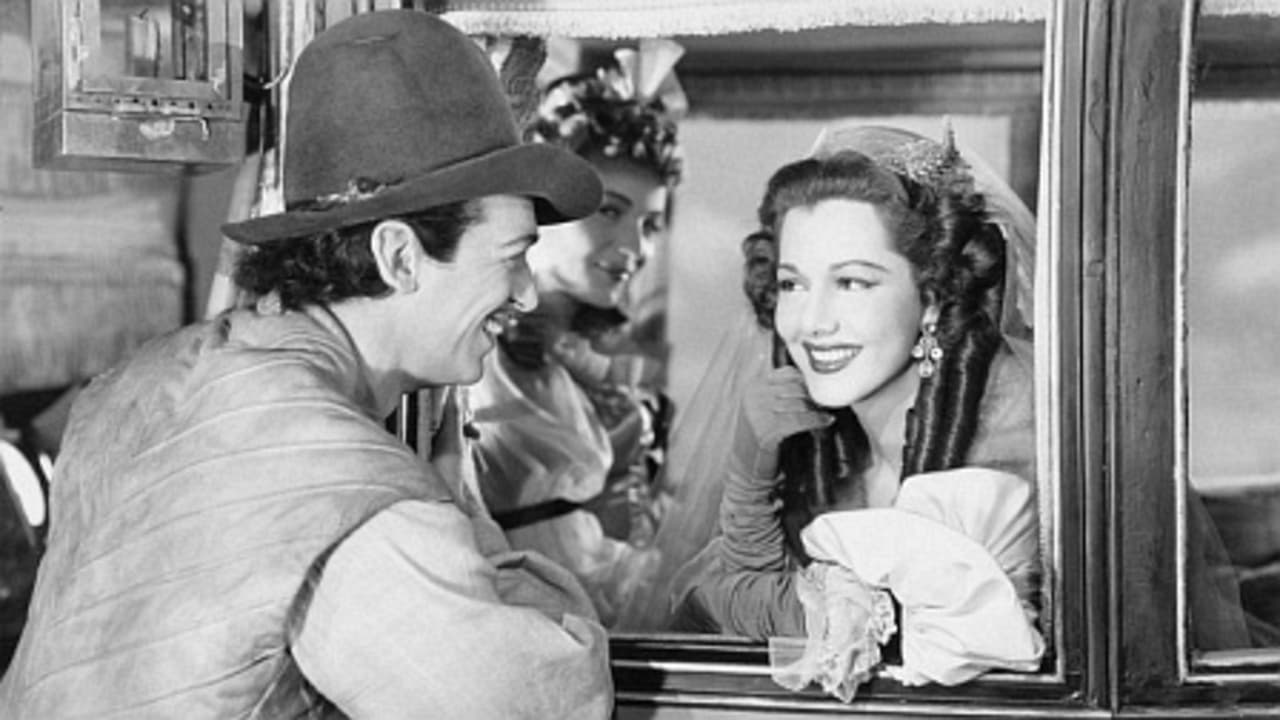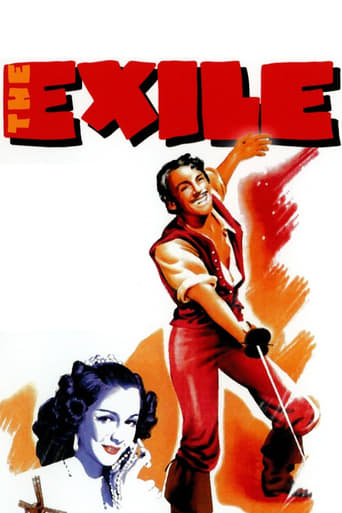Tedfoldol
everything you have heard about this movie is true.
Konterr
Brilliant and touching
Ogosmith
Each character in this movie — down to the smallest one — is an individual rather than a type, prone to spontaneous changes of mood and sometimes amusing outbursts of pettiness or ill humor.
Ortiz
Excellent and certainly provocative... If nothing else, the film is a real conversation starter.
clanciai
Max Ophüls is one of the greatest directors of all times, he started as assistant director to Anatole Litvak and learned very much from him, which you can see and feel in his films: they had a unique great efficiency of direction in common, but Ophüls added to his supreme mastery also a knack for moving cameras. You see that almost hallucinatory camera-work in every one of his films. His Jewish origin (his real name was Maximilian Oppenheimer) gave him problems with the German Nazi regime although he was an established leading director, so he changed his name and went to France - Ophüls is an old German aristocratic name, which he felt suited his image. He made no films between 1940 and 1947, being practically exiled but working in France and Italy and even America but returned to the screen in 1947 to make this flashing virtuoso film of exuberant romantic intrigue - the exiled king of England in constant fear of his life by the wicked roundheads escapes to a farm in Holland where he cultivates tulips with a charming country girl, with whom he naturally falls in love. Another exiled Englishman, an errant actor out of work, exuberantly played by Robert Coote, poses to be the exiled king to be treated thereafter but is visited by a French countess who knew the real king, which complicates matters, which are further complicated as the farm is invaded by roundheads who come to root out the king dead or alive. The film is actually written and produced by Douglas Fairbanks Jr, so it's really very much his film, and he makes the best of it in superb classical Fairbanks style with dashing duels and much kissing in between - especially impressive is the great hullabaloo with all the roundheads falling over each other in the desperate chase for the king in the windmill. There are great windmill acrobatics here. In brief, the film is a feast to the eyes, the story is mounting in intensity and interest all the way, the music is perfectly suited to illustrate the moods, the idylls, the drama, the tension and the high romance, it's in most ways the perfect adventure film where nothing is missing, and Max Ophüls' supreme direction and marvellous use of details crowds the film with opulent excellence from beginning to end. In brief, after seven years' absence Ophüls was back on the screen, and his next film would be the masterpiece "Letter from an Unknown Woman".
Robert J. Maxwell
Enoyable sketch of biography and adventure. It's Max Ophul's first American movie and Douglas Fairbanks, Jr., was recently returned from honorable service in the U.S. Navy.It's well written, acted, and directed. It's about the exiled King Charles II, Fairbanks, and his temporary refuge in Holland before being restored to the throne of England.Let me see if I've got this straight. I don't want to have to dig it up in Wikipedia. It's the early 1600s. The Roundheads, under Oliver Cromwell, have taken over England lopped off the head of Charles I, Fairbanks' father, and routed Fairbacks himself. This Cromwell had lots of passion and warts. He cleaned things up his own way, disenfranchising the Cavaliers who supported the King.Cromwell died and, as often happens when a charismatic figure disappears, there were great arguments over what would happen next, who was the next ruler of England. The true test of a government's viability comes not when one man or party is in power, but when that power must be passed on. The Sunni and Shi'ite still haven't figured it out.The Cavaliers are generally thought of as adventurous, honorable, militaristic, individual aristocrats. There were several kinds of Roundheads, ranging from the oppressive and punitive Pilgrims to the pacifistic, egalitarian and humble Quakers. The Cavaliers believed in personal achievement, the Roundheads in the community. The Roundheads settled New England (Plymouth was the last port they'd touched in England), while the Cavaliers settled the South (see Charleston or the Carolinas, named after the King).In this movie, Fairbanks' Charles II is the honorable hero who finds satisfaction as a bus boy in a Dutch Inn. (Holland was a commercial and cultural force to be reckoned with at the time.) He falls for the pretty blond who hires him knowing nothing of his background.But the Roundheads are hunting for him and they're led by Henry Daniell at his most villainous -- flat black hat, black clothes, black cape, all symbols of their difference with the more colorful and flamboyant garb of the Cavaliers. Boy, is Daniell menacing.He and the other Roundheads, bent on eliminating the throne once and for all, want to lop off Fairbanks' head too, despite his fairness and his popularity back home. They fail. There is a spectacular sword fight in and around a Dutch windmill -- exciting but not nearly as well done as those in, say, "The Mark of Zorro" or "Scaramouche." Fairbanks must give up his fair-haired Dutch girl friend when he becomes king. He loves her and wants to marry her, but she has her responsibilities back in Holland. Who will take care of her tulip garden? (The viewer is permitted a slight chuckle here.) "I will treat these memories as roses," murmurs Fairbanks, "and put them in a box. I will come to you in dreams." It sounds better in Fairbanks' reading than it looks in print.Not bad, overall. A throwback to the black-and-white studio-bound films of the 1930s, with Tyrone Power or Errol Flynn as the hero.
Eleanor Knowles Dugan
The costuming for this film must bring a smile to the face of anyone familiar with fashions of the 17th century. The film's action occurs in 1660, but Fairbanks and his colleagues wear jerkins fitted to the waist, stylish about 1620-1630, but apparently considered more dashing than the loose smocks and petticoat breeches of 1660. Then Maria Montez arrives, wearing a gown clearly from the 1880 Wild West costume rack in the Wardrobe Department. To atone, her second frock is only a century out of kilter, something from about 1750. I found the sound-stage exteriors very claustrophobic and phony, and I noted only 3 instances when I felt the "Ophüls touch," for example when the shutter blew open and closed, alternately revealing and concealing the lovers as they approach their first kiss. I'm also puzzled why Max Ophüls is listed as "Opuls" in the credits, but perhaps that is a phonetic rendering to eliminate the umlaut?
princehal
This is probably the least appreciated of the series of masterpieces Max Ophüls made in his too-short stay in Hollywood. Superficially it is a fairly silly, light-hearted historical romp, and it is enjoyable enough on that level. But this only throws into sharper relief the expressive mastery of Ophüls' style - by the end of the movie a single elegant camera move is enough to turn the mood to high tragedy. This is sublime filmmaking.

